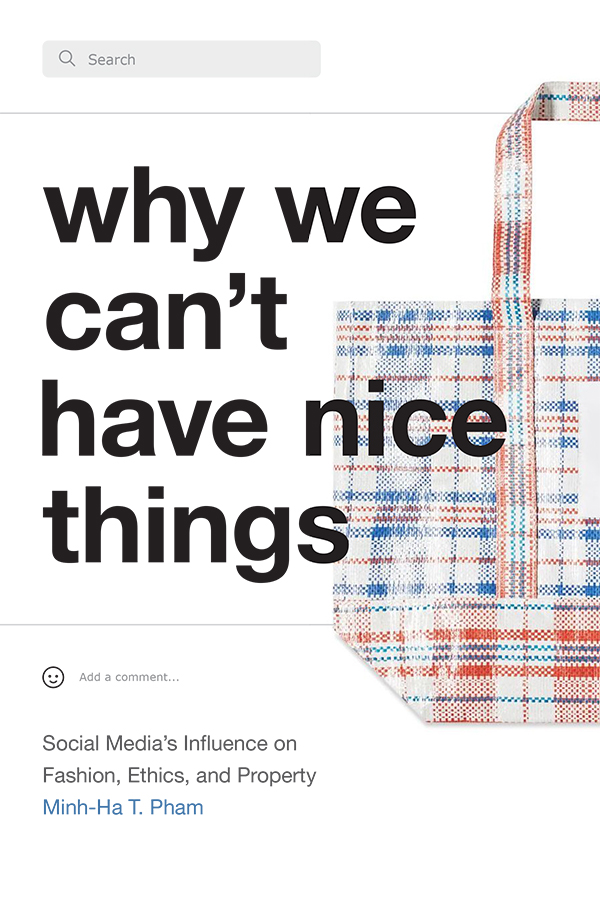In her second book, Why We Can’t Have Nice Things: Social Media’s Influence on Fashion, Ethics, and Property, Minh-ha T. Pham continues her examination of fashion’s digital labors, by analyzing what she terms crowdsourced intellectual property (IP) regulation. Pham argues that crowdsourced IP regulation follows a script that reaffirms the racial and class hierarchies that govern global fashion. A process that occurs across social media platforms, crowdsourced IP regulation does not actually adjudicate theft or ownership, but instead marks a site of struggle wherein the right to copy is publicly forged via commonsense, racialized ideas about who or what a “copycat” looks like. Pham explores this process through several case studies, as well as through the history of intellectual property within the fashion industry in the United States. Pham concludes her book with some reflections regarding the possibility of ethical fashion amidst a deeply unethical industry.
Keyword: fashion
Doing What You Love in the Age of Mass Debt
This paper examines the relationship between student debt and the changing terrain of work in U.S. culture, while attending to how these shifts mark a specifically gendered, racialized phenomenon. Drawing on the AAUW’s 2017 report on student debt, this paper examines the figure of the fashion intern in order to think about how the gender and racial inequities in student debt collude with what Angela McRobbie terms ‘the feminization of work’ to effect a gendered, racialized form of indebtedness. I assert that the ‘do what you love’ ethos described by Miya Tokumitsu contributes to the proliferation of feminized work in the culture industries, such as fashion, and the perpetuation of racial exclusivity within the industry.

